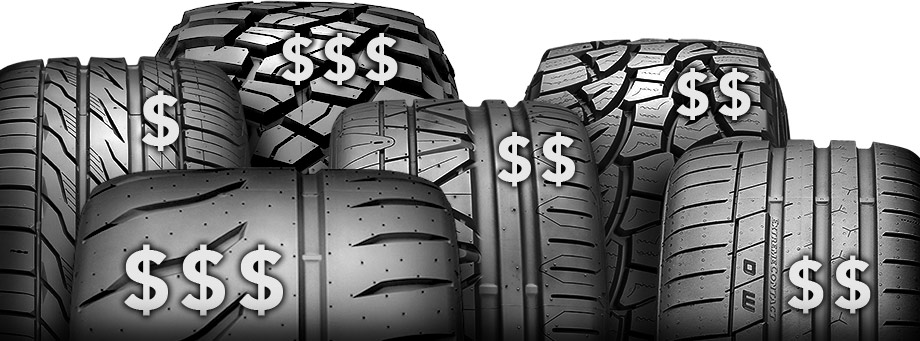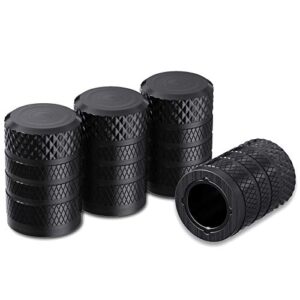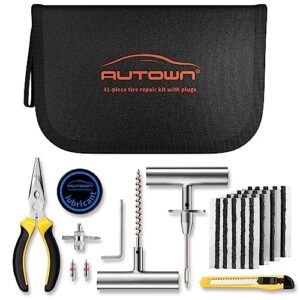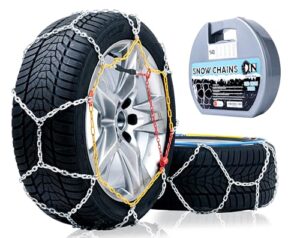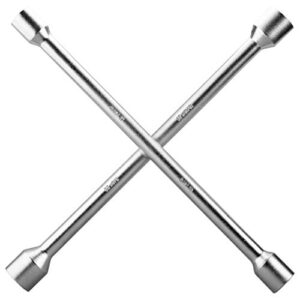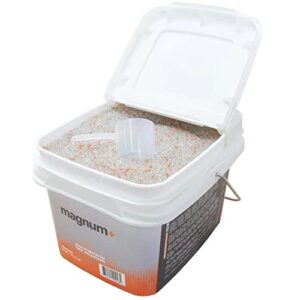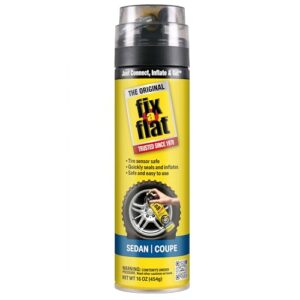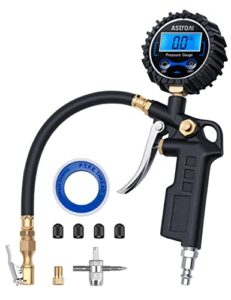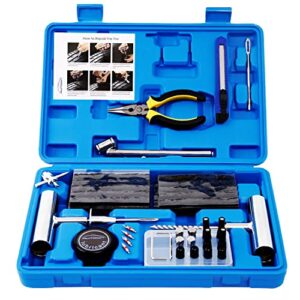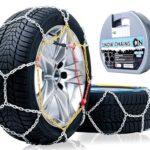The average cost of new tires ranges from $100 to $300 each, depending on the type and brand. Prices can vary based on size, performance, and vehicle requirements.
Choosing the right tires impacts your vehicle’s performance, safety, and fuel efficiency. Many factors influence tire prices, including brand reputation, tire type, and specific features. All-season tires typically cost less than performance or specialty tires. Researching and comparing different options helps you find the best value for your money.
Ensure the tires you select match your driving needs and environment. Proper maintenance and timely replacement of tires can extend their lifespan and improve overall driving experience. Investing in quality tires ensures better handling, increased safety, and long-term savings.

Factors Influencing Tire Costs
The cost of new tires varies widely. Several factors influence this cost. Understanding these factors helps you make informed choices. Let’s explore the key factors influencing tire costs.
Brand And Quality
The brand of a tire significantly affects its price. Well-known brands often cost more. They offer higher quality and better durability. Premium brands also provide advanced technologies. These features improve safety and performance.
Quality is another crucial factor. High-quality tires last longer and perform better. They can handle different weather conditions. Investing in quality tires can save money in the long run.
Tire Type
The type of tire you choose impacts the cost. There are various types of tires available:
- All-season tires: Suitable for year-round use. They are budget-friendly.
- Winter tires: Designed for snowy and icy conditions. They cost more due to specialized materials.
- Performance tires: Offer improved handling and speed capabilities. They come at a higher price.
- Off-road tires: Built for rough terrains. They are more expensive due to their durability.
Vehicle Specifications
Your vehicle’s specifications also play a role in tire costs. Larger vehicles, like SUVs and trucks, require bigger tires. These tires typically cost more. The vehicle’s weight, engine power, and usage also matter.
For example, a sports car needs performance tires. These are more expensive than standard tires. Always check your vehicle’s manual for the recommended tire specifications.
Understanding these factors helps you find the best tires for your needs and budget.
Popular Tire Brands
Choosing the right tire brand is important for safety and performance. There are many tire brands available, each offering different price points and features. Below, we explore some of the most popular tire brands categorized by price range.
Premium Brands
Premium tire brands offer high-quality materials and advanced technology. These tires often last longer and provide better performance.
- Michelin – Known for durability and excellent grip.
- Bridgestone – Offers a smooth ride and superior handling.
- Goodyear – Renowned for their innovative tire designs.
Mid-range Options
Mid-range tire brands offer a balance between cost and quality. These brands provide good performance without breaking the bank.
- Continental – Great for everyday use and reliable performance.
- Hankook – Known for their affordability and decent durability.
- Kumho – Offers good quality at a reasonable price.
Budget-friendly Choices
Budget-friendly tire brands are perfect for those on a tight budget. These tires are more affordable but still offer acceptable performance.
- General Tire – Affordable and reliable for everyday driving.
- Cooper – Known for their cost-effectiveness and good traction.
- Sumitomo – Offers decent quality at a budget-friendly price.
| Brand | Price Range (per tire) |
|---|---|
| Michelin | $120 – $300 |
| Bridgestone | $100 – $280 |
| Goodyear | $80 – $250 |
| Continental | $70 – $200 |
| Hankook | $60 – $180 |
| Kumho | $50 – $150 |
| General Tire | $40 – $100 |
| Cooper | $50 – $120 |
| Sumitomo | $40 – $90 |
Types Of Tires
Understanding the different types of tires can help you choose the best one for your needs. Each type of tire has unique features, benefits, and costs. Let’s explore some common types of tires.
All-season Tires
All-season tires are designed for year-round use. They offer a balance of performance in wet, dry, and light snowy conditions. These tires are popular due to their versatility.
- Suitable for various weather conditions
- Longer tread life compared to other types
- Average cost: $50 to $200 per tire
Winter Tires
Winter tires are specifically made for cold weather. They perform well in snow, ice, and slush. These tires have a deeper tread pattern and are made of a softer rubber compound.
- Better traction in snow and ice
- Softer rubber stays flexible in cold temperatures
- Average cost: $60 to $250 per tire
Performance Tires
Performance tires are designed for high-speed and sporty vehicles. They offer better handling, cornering, and braking. These tires have a unique tread pattern and rubber compound.
- Improved handling and responsiveness
- Shorter tread life due to softer rubber
- Average cost: $100 to $500 per tire
| Type of Tire | Key Features | Average Cost (per tire) |
|---|---|---|
| All-Season Tires | Versatile, long tread life | $50 to $200 |
| Winter Tires | Better traction in snow and ice | $60 to $250 |
| Performance Tires | Improved handling, shorter tread life | $100 to $500 |
Cost Breakdown By Tire Type
Understanding the cost of new tires is essential for budgeting. The price varies based on the type of tire you choose. Below is a breakdown of the average costs for different tire types.
All-season Costs
All-season tires are designed for year-round use. They perform well in various weather conditions.
- Economy All-Season Tires: $50 – $100 per tire
- Mid-Range All-Season Tires: $100 – $200 per tire
- Premium All-Season Tires: $200 – $300 per tire
Winter Tire Costs
Winter tires are made for cold weather and snowy roads. They offer better traction in winter conditions.
| Type | Cost Per Tire |
|---|---|
| Economy Winter Tires | $60 – $120 |
| Mid-Range Winter Tires | $120 – $250 |
| Premium Winter Tires | $250 – $400 |
Performance Tire Costs
Performance tires are built for speed and handling. They are perfect for sports cars.
- Economy Performance Tires: $70 – $150 per tire
- Mid-Range Performance Tires: $150 – $300 per tire
- Premium Performance Tires: $300 – $500 per tire
Choosing the right tire type depends on your driving needs and budget. Make sure to consider the specific benefits of each tire type.
Additional Expenses
Purchasing new tires involves more than just the cost of the tires themselves. Various additional expenses can quickly add up, impacting the overall cost. Understanding these expenses helps in budgeting effectively. Below are some common additional costs to consider:
Installation Fees
Most tire shops charge a fee to install your new tires. This fee typically includes the labor to remove old tires and mount the new ones. Installation fees can range from $15 to $45 per tire. Always ask for the installation fee upfront to avoid surprises.
Balancing And Alignment
Proper tire balancing and alignment are crucial for safe driving. Balancing ensures that the tires rotate evenly, reducing vibration and wear. Alignment keeps the tires pointing in the right direction, improving handling and extending tire life.
On average, tire balancing costs $10 to $20 per tire. Wheel alignment is usually between $75 and $100 for all four wheels. These services are essential for maintaining your vehicle’s performance and ensuring even tire wear.
Disposal Fees
Getting rid of old tires responsibly often incurs a disposal fee. This fee covers the cost of recycling or properly disposing of the old tires. Tire disposal fees usually range from $2 to $5 per tire.
Some states have specific regulations and may charge higher fees. Always check with your local tire shop for exact disposal costs.
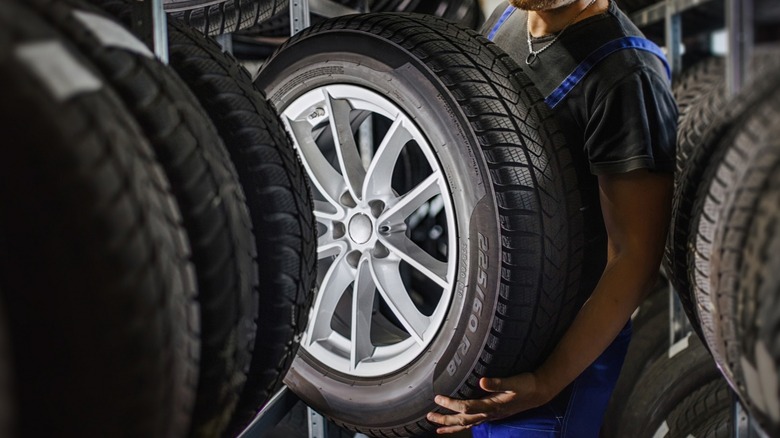
Where To Buy Tires
Finding the right place to buy new tires can save you money. It also ensures you get quality service. Here are some popular options:
Local Dealerships
Many people buy tires from their local dealerships. These places often provide tire installation services. You can trust them for their expertise. They usually offer a wide range of tire brands. But, their prices might be higher.
| Pros | Cons |
|---|---|
| Expert service | Higher prices |
| Wide range of brands | Limited discounts |
| Convenient installation | Less negotiation on price |
Online Retailers
Many people prefer buying tires online. This method often offers better prices. Websites like Tire Rack and Amazon have many options. You can compare prices easily. Some online retailers offer free shipping. You might also find customer reviews helpful.
- Better prices
- Easy price comparison
- Customer reviews available
- Free shipping options
However, you need to arrange for installation yourself. Some online retailers partner with local shops for this service. Always check for return policies before buying.
Discount Tire Shops
Discount tire shops can be a great place to save money. These shops often have sales and promotions. You might find tires at lower prices than dealerships. The staff can help you find the best deals.
- Look for seasonal promotions
- Ask about warranty options
- Check for installation services
Discount tire shops sometimes offer package deals. These packages can include installation and balancing. Always ask for a detailed quote.
How To Save On New Tires
New tires can be a significant expense for car owners. To reduce costs, consider several strategies. These methods will help you save money while ensuring quality.
Seasonal Sales
Many retailers offer seasonal sales on tires. These sales usually happen during major holidays. Look for deals around Black Friday, Memorial Day, and Labor Day. During these times, you can find discounts up to 50%. Keep an eye on ads and newsletters to catch these sales.
Manufacturer Rebates
Manufacturer rebates provide another way to save. Brands often offer rebates on specific tire models. These rebates can be claimed after purchase. Fill out a form and mail it with your receipt. Rebates can range from $50 to $100 per set of tires. Check the manufacturer’s website for current offers.
Bundling Services
Bundling services can also reduce costs. Some retailers offer deals when you buy tires and other services together. For example, you might get a discount on alignment or balancing services. This not only saves money but also ensures your tires are installed correctly.
| Saving Method | Average Savings |
|---|---|
| Seasonal Sales | Up to 50% |
| Manufacturer Rebates | $50 to $100 |
| Bundling Services | Varies |
- Seasonal Sales: Look for deals during holidays.
- Manufacturer Rebates: Check brand websites for offers.
- Bundling Services: Ask about discounts on additional services.
- Sign up for retailer newsletters.
- Track major holidays for sales.
- Submit rebate forms promptly.
- Inquire about service bundles.

Frequently Asked Questions
How Much Should 4 New Tires Be?
The cost of 4 new tires typically ranges from $400 to $1,200. Prices vary based on brand and tire type.
Is $200 A Tire Expensive?
$200 for a tire can be expensive. Prices vary based on brand, quality, and type. Research and compare options.
Should You Buy 4 New Tires At Once?
Yes, buying 4 new tires at once ensures balanced performance, even tread wear, and improved safety. It also improves handling and fuel efficiency.
How Much Is A Full Set Of Brand New Tires?
A full set of brand new tires typically costs between $400 and $1,200. Prices depend on tire brand and vehicle type.
Conclusion
Finding the average cost of new tires involves many factors. Prices vary based on brand, size, and type. Always compare options and read reviews before purchasing. Investing in quality tires can improve vehicle performance and safety. Make informed decisions to get the best value for your money.


